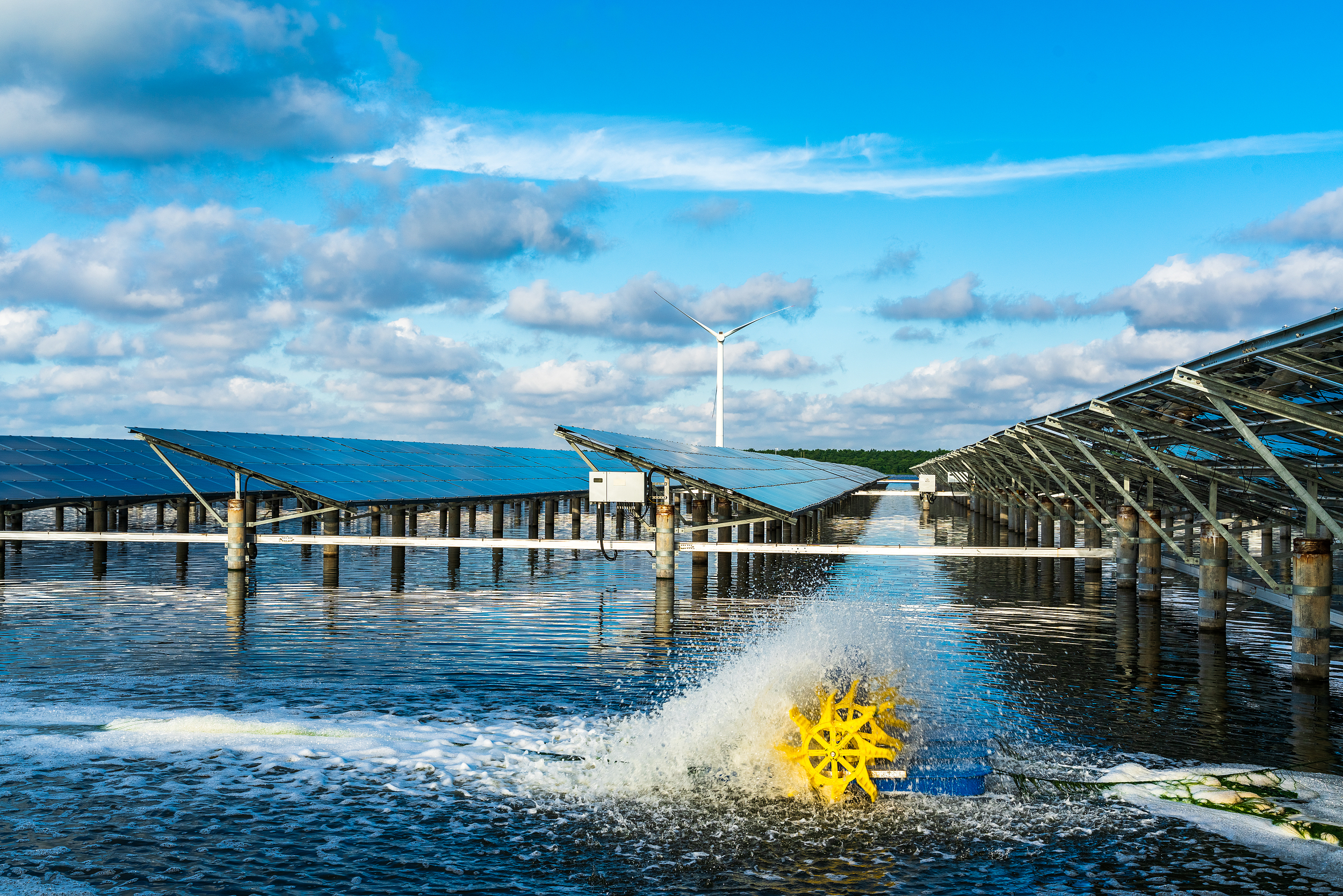 手机访问:wap.265xx.com
手机访问:wap.265xx.comGlobal Climate Governance Needs All Hand

China's solar power and wind power are environmentally friendly. (PHOTO: VCG)
By Qi Liming
China has received high praise for accelerating green transformation and focusing on pragmatic actions as well as efforts in developing renewable energy from UN Secretary-General Antonio Guterres.
He made the remarks while in discussion with China's Special Envoy for Climate Change Xie Zhenhua at COP 27, the annual UN meeting on climate change currently taking place at Sharm el-Sheikh in Egypt until November 18.
China is making painstaking efforts to construct an ecological civilization, improve environmental quality, and develop renewable energy, and the country's proposals at COP27 are high on the agenda.
Ecological civilization benefits sustainable development
China has followed the concept that, "lucid waters and lush mountains are invaluable assets". As Issues in Science and Technology journal reported, China's ecological civilization model appears to offer quick and tangible fixes.
Based on abundant data and analysis, researchers have come to deeply appreciate the connections between environmental sustainability and social development.
According to Diálogo Chino, a media platform covering the relationship between China, Latin America and the environment, looking at a global scale, the discourse of ecological civilization can be seen as aiming to influence environmental governance in international fora, in "common but differentiated responsibilities" to tackle climate change within UN negotiations.
China's ecological civilization concept has the potential to influence a new paradigm for cooperation on sustainability. Understanding and engaging with the ecological civilization concept is important, and could have wide-ranging benefits, which could help shape the dynamics of transpacific exchange.
Economic transition makes carbon emission reduction possible
In October, The World Bank Group's Country Climate and Development Report (CCDR) for China analyzed the fundamental changes in energy, industry, transport, cities, and land use, that would enable China to realize the national commitments to reach the target of peaking carbon emissions and achieving carbon neutrality.
According to the report, without China successfully transitioning to a low-carbon economy, achieving global climate goals will be impossible. This transition will require a massive shift in resources, innovation, and new technologies to enhance energy efficiency and resource productivity. China's advanced technological capabilities mean the pathway to carbon neutrality will open new avenues for development.
The South China Morning Post says, great progress has been made in several areas of China's fight against environmental pollution. For instance, air quality, water quality, and soil quality have greatly improved in China during the past decade, thanks to the country's advanced technology and commitment.
Renewable energy brings achievable goals
China's tangible offerings of the transformation of energy structure appear to offer a path forward, instead of the sacrificing of social and economic development. Technology, of course, has long been at the center of global climate conversations and negotiations.
Statistics from the Global Wind Energy Council showed that, in addition to solar power, China has been leading the world in new installations of offshore wind capacity since 2018. As for the transportation sector, China is already home to the fastest-growing electric vehicle market in the world.
Another salient aspect of China's decarbonized energy future is its hefty investments in nuclear power technologies. These investments contrast with other parts of the world, where nuclear development is held back by public opposition and court challenges.
Judith Shapiro, on the faculty of the University for Peace in Costa Rica, said that by contrast, China's vision of concrete targets, achievable goals, and deployable technology represents a type of single-mindedness and decisiveness.
Rich countries fail to keep their words
From China's experience, the significant thing in tackling climate change is not only commitment, but also ample funding support. That's the reason why at COP27 China has called on wealthy nations to support developing countries most at risk of environmental damage.
The thorny issue of compensation from rich nations to poorer ones that are the most vulnerable to climate change is expected to be high on the agenda of the COP27 summit for the first time. President of COP27, Sameh Shoukry, said the issue "reflects a sense of solidarity and empathy for the suffering of the victims of climate-induced disasters."
According to the Organization for Economic Cooperation and Development (OECD), the developed nations only provided 83.3 billion USD by July of this year, failing to meet their pledge made in 2009 to deliver 100 billion USD per year by 2020 to help poorer countries cope with climate change.
最近更新人物资讯
- 青年节专题时文精选,1个专题+5篇模板+12篇范文+1个作文合集(角度+金句+精
- 最新质量管理体系基本要求(五篇)
- 赤坂丽颜值巅峰之作,禁忌之爱代表作品-高校教师成熟
- [王仲黎]人茶共生:布朗族茶文化话语中的生态伦理
- 北京文艺日历 06.12~06.18
- 有什么好看的少女漫画推荐?
- 为了孩子陪睡校长,请别拿这电影洗白
- 当贝市场tv版apk下载
- 茉
- BBC评出有史以来美国最伟大的100部电影
- 泰山岱庙古建筑之文化特色初探
- 阴阳五行学说范文
- 2022伦敦大学学院Bartlett建筑学院Part2毕业展
- 观看平凡英雄观后感1000字
- 纽约大都会博物馆(二)古希腊艺术与神话
- 收藏 | 带你穿越500年,看一看这50位著名艺术家
- ab血型女人的性格
- 春节活动策划方案
- 为什么孕妇生产有危险时,部分丈夫和婆婆会选择保小孩?
- 《员工自发管理的儒家修为智慧》
- 菲律宾尺度片的全明星阵容,菲律宾女人质量这么高的吗?
- 文学课 | 韩少功:文学与记忆
- 《人性的污秽》中的伦理道德世界
- 宋惠莲背夫和西门庆幽会后自缢,看透情色表象下的死亡真相
- 秋波多少画(五代词全集)
